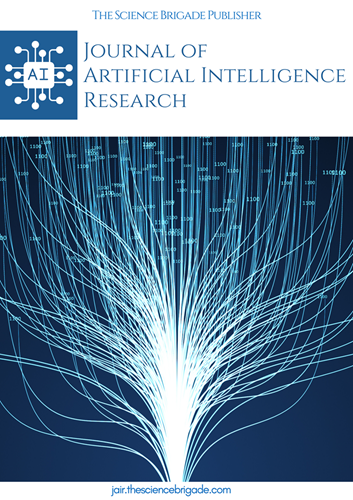Improving Project Time and Cost Estimation Accuracy Using AI-Based Predictive Models
Keywords:
AI, Predictive Models, Project Management, Time EstimationAbstract
Accurate project time and cost estimation are crucial for successful project management, yet they often present significant challenges. Traditional estimation methods frequently lead to inaccuracies, resulting in project delays and budget overruns. This paper explores the application of Artificial Intelligence (AI)-based predictive models to enhance the accuracy of project time and cost estimations. By leveraging historical data and advanced algorithms, AI models can identify patterns and trends that inform more reliable estimates. The study presents various AI techniques, including machine learning and neural networks, detailing their effectiveness in minimizing estimation variance. Additionally, real-world case studies illustrate the successful implementation of these models in different project environments. The findings underscore the potential of AI to revolutionize project planning by providing data-driven insights that improve decision-making and resource allocation. Ultimately, integrating AI into project estimation processes can lead to improved project outcomes, including increased efficiency and reduced costs.
References
Gayam, Swaroop Reddy. "Deep Learning for Predictive Maintenance: Advanced Techniques for Fault Detection, Prognostics, and Maintenance Scheduling in Industrial Systems." Journal of Deep Learning in Genomic Data Analysis 2.1 (2022): 53-85.
Alluri, Venkat Rama Raju, et al. "DevOps Project Management: Aligning Development and Operations Teams." Journal of Science & Technology 1.1 (2020): 464-487.
Nimmagadda, Venkata Siva Prakash. "Artificial Intelligence for Supply Chain Visibility and Transparency in Retail: Advanced Techniques, Models, and Real-World Case Studies." Journal of Machine Learning in Pharmaceutical Research 3.1 (2023): 87-120.
Putha, Sudharshan. "AI-Driven Predictive Maintenance for Smart Manufacturing: Enhancing Equipment Reliability and Reducing Downtime." Journal of Deep Learning in Genomic Data Analysis 2.1 (2022): 160-203.
Sahu, Mohit Kumar. "Advanced AI Techniques for Predictive Maintenance in Autonomous Vehicles: Enhancing Reliability and Safety." Journal of AI in Healthcare and Medicine 2.1 (2022): 263-304.
Kondapaka, Krishna Kanth. "AI-Driven Predictive Maintenance for Insured Assets: Advanced Techniques, Applications, and Real-World Case Studies." Journal of AI in Healthcare and Medicine 1.2 (2021): 146-187.
Kasaraneni, Ramana Kumar. "AI-Enhanced Telematics Systems for Fleet Management: Optimizing Route Planning and Resource Allocation." Journal of AI in Healthcare and Medicine 1.2 (2021): 187-222.
Pattyam, Sandeep Pushyamitra. "Artificial Intelligence in Cybersecurity: Advanced Methods for Threat Detection, Risk Assessment, and Incident Response." Journal of AI in Healthcare and Medicine 1.2 (2021): 83-108.
Katari, Pranadeep, et al. "Remote Project Management: Best Practices for Distributed Teams in the Post-Pandemic Era." Australian Journal of Machine Learning Research & Applications 1.2 (2021): 145-167.
M. Abadi et al., "TensorFlow: A system for large-scale machine learning," in Proceedings of the 12th USENIX Symposium on Operating Systems Design and Implementation (OSDI 16), 2016, pp. 265-283.
Y. Zhang and Q. Yang, "A survey on multi-task learning," IEEE Transactions on Knowledge and Data Engineering, vol. 34, no. 12, pp. 5586-5609, Dec. 2022.
Y. Wang, Q. Chen, and W. Zhu, "Zero-shot learning: A comprehensive review," IEEE Transactions on Neural Networks and Learning Systems, vol. 30, no. 7, pp. 2172-2188, Jul. 2019.
D. Bahdanau, K. Cho, and Y. Bengio, "Neural machine translation by jointly learning to align and translate," in Proceedings of the 3rd International Conference on Learning Representations (ICLR), 2015.
M. I. Jordan and T. M. Mitchell, "Machine learning: Trends, perspectives, and prospects," Science, vol. 349, no. 6245, pp. 255-260, 2015.
J. Devlin, M. W. Chang, K. Lee, and K. Toutanova, "BERT: Pre-training of deep bidirectional transformers for language understanding," in Proceedings of the 2019 Conference of the North American Chapter of the Association for Computational Linguistics: Human Language Technologies, 2019, pp. 4171-4186.
A. Vaswani et al., "Attention is all you need," in Proceedings of the 31st International Conference on Neural Information Processing Systems (NeurIPS), 2017, pp. 5998-6008.
Downloads
Published
How to Cite
Issue
Section
License

This work is licensed under a Creative Commons Attribution-NonCommercial-ShareAlike 4.0 International License.
License Terms
Ownership and Licensing:
Authors of this research paper submitted to the journal owned and operated by The Science Brigade Group retain the copyright of their work while granting the journal certain rights. Authors maintain ownership of the copyright and have granted the journal a right of first publication. Simultaneously, authors agreed to license their research papers under the Creative Commons Attribution-NonCommercial-ShareAlike 4.0 International (CC BY-NC-SA 4.0) License.
License Permissions:
Under the CC BY-NC-SA 4.0 License, others are permitted to share and adapt the work, as long as proper attribution is given to the authors and acknowledgement is made of the initial publication in the Journal. This license allows for the broad dissemination and utilization of research papers.
Additional Distribution Arrangements:
Authors are free to enter into separate contractual arrangements for the non-exclusive distribution of the journal's published version of the work. This may include posting the work to institutional repositories, publishing it in journals or books, or other forms of dissemination. In such cases, authors are requested to acknowledge the initial publication of the work in this Journal.
Online Posting:
Authors are encouraged to share their work online, including in institutional repositories, disciplinary repositories, or on their personal websites. This permission applies both prior to and during the submission process to the Journal. Online sharing enhances the visibility and accessibility of the research papers.
Responsibility and Liability:
Authors are responsible for ensuring that their research papers do not infringe upon the copyright, privacy, or other rights of any third party. The Science Brigade Publishers disclaim any liability or responsibility for any copyright infringement or violation of third-party rights in the research papers.




